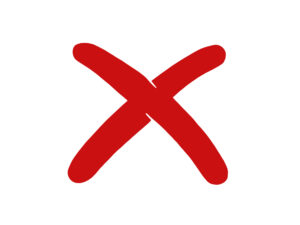Is Warehouse an ethical and sustainable fashion brand?
Warehouse, a Debenhams Group PLC-owned online fast fashion business, receives a low Ethical Rating from The Good Shopping Guide. Unfortunately, this brand has not yet reached our minimal standard and receives a Good Shopping Guide Ethical Score in our ranking table of Ethical Fashion Retailers. This brand has to make a number of improvements before it will be eligible for our Ethical Accreditation.
In what areas does Warehouse perform poorly?
Because it is a fast fashion business and engages in several ethical offences, Warehouse received a bad grade across our Environment, Animals, and People categories.
Although a number of brands under the Debenhams Group- such as Burton, and Dorothy Perkins– claim that only organic cotton is used in the manufacture of their items, there is no independent certification or verification to back up this assertion. Cotton is a crop that generally uses high quantities of pesticides, thus it is certified to ensure that it wasn’t grown in a way that would have affected local farmers, ecosystems, wildlife, or communities. As a result, Warehouse received a very poor rating for our Organic criteria.
Debenhams, Warehouse’s parent business has also come under fire from PETA for using wool in several of its goods. Debenhams told the media that it would discontinue carrying wool products in its online shops in reaction to these accusations. However, the company then went back on its promise following pressure from sheep farmers. Vegans may want to avoid Warehouse items because they occasionally still contain wool in some of its products.
From there, Warehouse’ record with regard to violating animal welfare standards doesn’t get any better; parent firm Debenhams came under fire for passing off real fur, possibly from a rabbit, as artificial fur. This is deceptive. Fur for fashion’s sake involves killing animals just to make a profit. Until this company adopts higher standards and starts pursuing our Ethical Accreditation, consumers who are vegetarians, vegans, or who care about animal welfare may want to avoid the brand. We did not give Warehouse a high ranking for its Animal Welfare Policy as a result of these incidents.
In what areas does Warehouse perform well for its ethics and sustainability?
Warehouse also has a complete Code of Conduct; with such paperwork, both investors and customers can hold businesses accountable and determine which companies are making plans for a sustainable future. Here is the Warehouse Code of Conduct.
How can the Warehouse brand improve its Ethical Rating?
The Good Shopping Guide awards a score for Warehouse based on 15 ethical criteria. However, before receiving our Ethical Accreditation, Warehouse must resolve a number of issues, including its low standards for animal welfare and the treatment of workers in its supply chain.
If your fashion brand values ethics and sustainability, why not check out The Good Shopping Guide’s Ethical Accreditation? Increase customer and investor confidence and stand out from the greenwash.
Ethical performance in category
GSG score
GSG category benchmark
Ethical Rating
Environment
-
Environmental Report
Good
-
Organic
Poor
-
Better Cotton Initiative
Good
-
Fossil Fuels
Good
Animal
-
Animal Welfare
Poor
People
-
Armaments
Good
-
Code of Conduct
Good
-
Political Donations
Good
-
Ethical Trading Schemes
Poor
-
Human Rights
Poor
-
Human Rights+
Poor
Other
-
Ethical Accreditation
Poor
-
Other Criticisms
Poor
-
Other Criticisms+
Poor
= GSG Top Rating = GSG Middle Rating = GSG Bottom Rating
